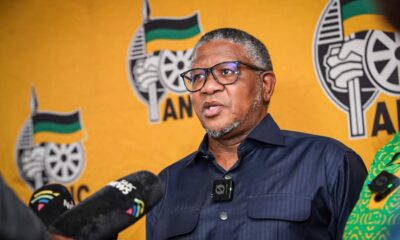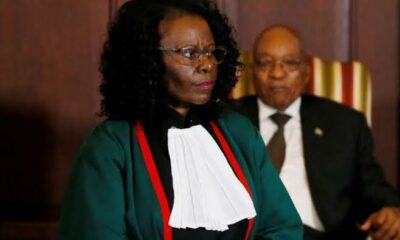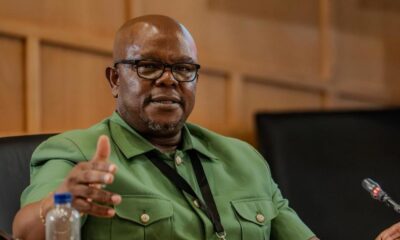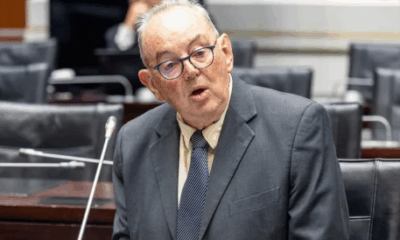News
MK Party and ActionSA Rip Into Ramaphosa’s Cabinet Reshuffle: “Bloated, Broken, and Betraying the People”
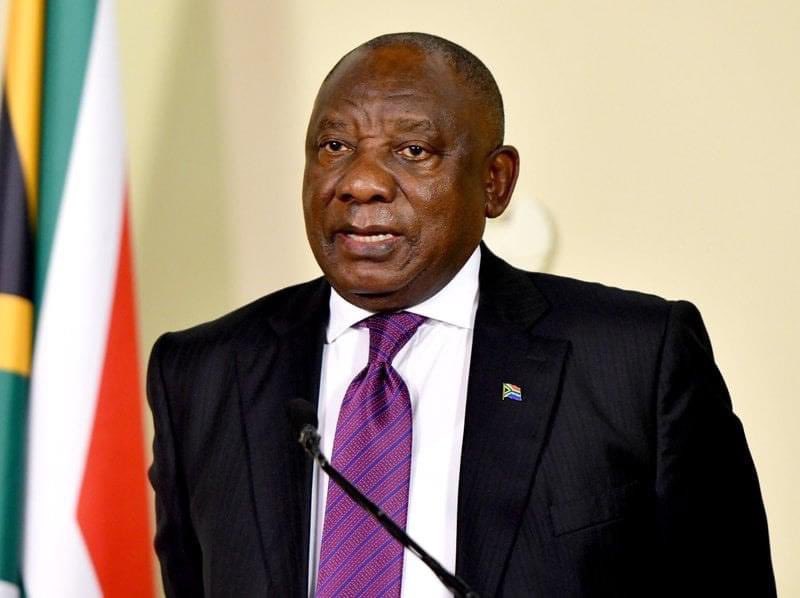
“Bloated, broken, and betraying the people” opposition parties take aim at the GNU’s dysfunction and the President’s failure to act.
President Cyril Ramaphosa’s long-awaited cabinet reshuffle has landed, just not the way South Africans may have hoped. Within hours of the announcement, two of the most outspoken opposition parties, the uMkhonto weSizwe Party (MKP) and ActionSA, went on the offensive, painting the Government of National Unity (GNU) as a dysfunctional, incoherent, and bloated experiment that’s failing the very people it claims to serve.
At the centre of the backlash? The dismissal of Deputy Minister Andrew Whitfield, a reshuffle that kept several tainted ministers in place, and a ballooning executive that critics say prioritises political deals over real reform.
MK Party: “The GNU is a betrayal of the working class”
MKP Chief Whip Colleen Makhubele didn’t mince words. According to her, the reshuffle is just more evidence that the GNU, billed as a broad coalition for unity, is structurally flawed and ideologically incoherent.
“This was formed under the pretence of unity,” Makhubele said, “but it’s nothing more than a political pact that benefits the elite while the working class and marginalised continue to suffer.”
She accused the ANC and DA of clashing ideologies that make meaningful governance impossible, pointing to the controversy around Higher Education Minister Nobuhle Nkabane’s SETA board appointments as just one example of gridlock and compromise.
From the MKP’s perspective, the real issues, land reform, economic inequality, poverty, and the legacy of apartheid are being ignored in favour of “elite power-sharing.”
In a fiery appeal, Makhubele called on South Africans to reject what she termed the “status quo of betrayal” and join a broader movement for pan-African solidarity, resource reclamation, and revolutionary transformation.
ActionSA: Cut the dead wood and shrink the state
ActionSA’s Parliamentary Leader Athol Trollip echoed many of the MKP’s concerns but focused his criticism on the size and inefficiency of the Cabinet.
“South Africa now has one of the largest Cabinets in the world,” he said, “and one of the most ineffective.”
Instead of cleaning house, Trollip argued, the President opted for political safety, retaining ministers accused of mismanagement and corruption. Among those named were:
-
Minister Simelane, implicated in controversies related to VBS Mutual Bank
-
Minister Ntshaveni, reportedly under investigation by the NPA
-
Minister Nkabane, who allegedly misled Parliament on SETA board appointments
“Ramaphosa’s reshuffle was a missed opportunity,” Trollip said. “He could have fired the dead wood and reasserted the integrity of government, but he didn’t.”
ActionSA has taken its fight further by introducing its Enhanced Cut Cabinet Perks Bill and is preparing a Constitutional Amendment to eliminate the role of Deputy Ministers entirely. According to the party, these moves could save taxpayers R1.5 billion annually.
Public frustration echoes opposition anger
On social media, many South Africans voiced similar frustration. Posts on X (formerly Twitter) expressed disbelief at the Cabinet’s growing size and anger over the retention of ministers with questionable records.
“This GNU isn’t about unity, it’s about survival,” wrote one user.
“Another reshuffle, another disappointment. Where’s the accountability?” asked another.
The reshuffle comes as economic indicators remain bleak, high unemployment, worsening inequality, and growing discontent, adding fuel to opposition claims that the GNU is out of touch with grassroots realities.
What’s next?
The GNU may have been conceived as a path to unity in a fractured political environment, but cracks are becoming harder to paper over. With the 2026 local elections on the horizon, parties like MKP and ActionSA are positioning themselves as bold alternatives to the status quo.
Whether President Ramaphosa heeds the calls for reform or sticks with political expediency, remains to be seen. But one thing is clear: South Africa’s political landscape is entering a new era of confrontation, and the public is watching closely.
{Source: IOL}
Follow Joburg ETC on Facebook, Twitter , TikTok and Instagram
For more News in Johannesburg, visit joburgetc.com

